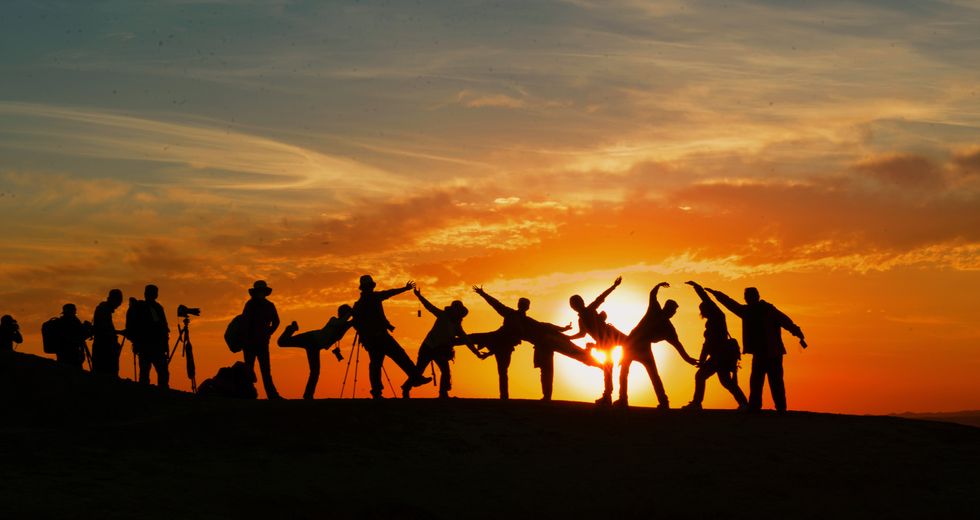Freud's theory on dreams is interesting : the subject matter of our dreams is supposedly the content of our deepest desires. Of course, as with all Freudian theories, said deepest desires are found in our subconscious. But what if the theory didn't apply to just our dreams? What if, in every part of our lives, we chose things because they were things we wanted for ourselves, but we only knew that subconsciously?
Say, for example, the dreams. Perhaps we dream about being with someone in a relationship, and when practicing the theory, it's because we want that person. That's nothing new. We don't have the ability to control what goes on in our dreams.
But we do have the power to control other things. Who we have as our friends, for example. Each of our friends (extending to friend groups as a whole) brings something to the table, something that we admire or love in them. It's entirely possible that in choosing them for those qualities, they end up being ones that we want to eventually have for ourselves. In true Freudian fashion, however, that's not something we know consciously. Our subconscious may know the different qualities we want to absorb from people, and end up choosing suitable people accordingly.
It's really quite startling once one thinks about it. That one quality in your friend that makes them them ? Perhaps you sought to befriend them in the first place because you wanted to emulate that quality yourself; but that wasn't something you chose to do. Maybe it's not even a quality you considered ever becoming a part of your personality. Or maybe it's one you didn't dare dream of being able to possess. But friends can be a powerful influence - maybe one day you'll be that passionate orator you've always wanted to be, but never thought you could become.
Maybe another part our subconscious plays in choosing our friends is what parts of ourselves we see in them. On the surface, we make our friends based on mutual interests, or a shared event. But sometimes we see a little bit of ourselves in the friend that we're making. We choose them because they're like us.
In a way, perhaps that's why we make so many of our friends at one of two points in life: during the first day of school, or during our first year in college. During those perilous first days, we tend to show our truest personalities, hoping that someone will see us for who we really are. It's a prime time for the subconscious to seize onto souls that are similar to our own, or find traits to admire and adopt. College is a little trickier - we've grown wise to the ways of society, and know that we have to mold ourselves to certain parameters to get people to like us. (If you're about being that kind of person.) But at the same time, we have a good sense of who we are. It's easier to see ourselves in other people - the kind of people we want to surround ourselves with.
So really, we don't make our own friends. Freud makes them for us.

















